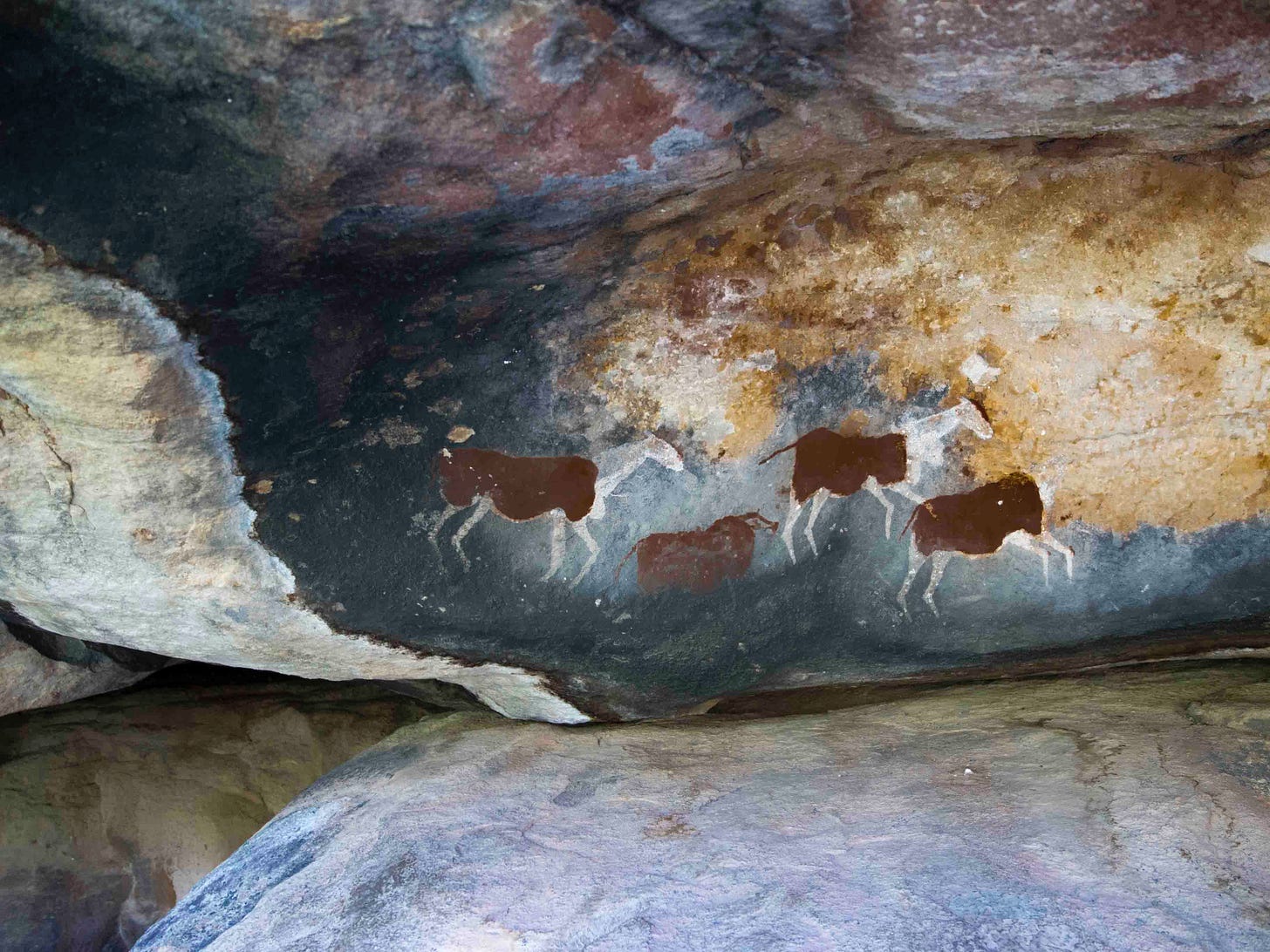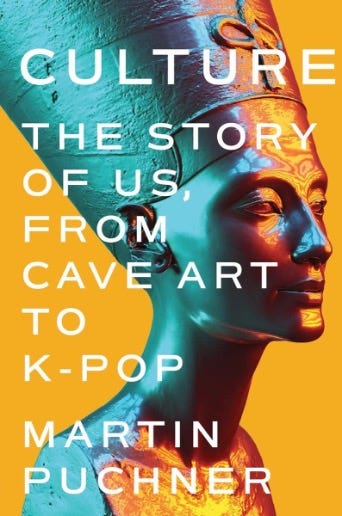In today’s modern American culture wars, there is a persistent debate between whether cultures can be “appropriated” and who – if anyone – gets to speak for a particular culture. If you’re not “of” a particular culture then it’s wrong for you to dress or enjoy aspects of other cultures without a mystery level of knowledge of appreciation or whatever is deemed correct by (mostly) white, educated liberals.
In Culture: The Story of Us, From Cave Art to K-Pop, Martin Puchner shows through detailed stories of human cultural history why if you bother to actually look at human cultural history, cultural appropriation is a perplexing argument, really. He argues, as I presume most experts would, that culture cannot be owned – a direct opposition to the cultural appropriation crowd who argue that culture is a form of property. His evidence in favor of rejecting the idea that culture can be owned is all of human history.
The book tells the story of human culture through historical stories of storage, loss, and recovery. Across the entirety of human history, cultural ideas, artifacts, and practices face persistent problems of preserving culture and preventing its loss, in addition to interpreting past cultures that are rediscovered. These basic ideas serve as a thread to understand the connections, between apparently disparate cultures across history.
Puchner maintains that culture is not a possession – and therefore cannot be appropriated – but rather a giant recycling project. This is obvious is you talk to anyone outside a college campus. Cultural practices are made up of borrowing, discovery, and reinterpretation. Culture demonstrates these ideas through different historical stories in each chapter. Beginning with Queen Nefertiti in the 14th century BC through Nigerian independence from British rule in the 1960s.
The time span covered throughout the book is impressive and you’ll learn many curious facts about various cultures and historical figures. You learn how Nefertiti attempted to start anew, casting away previous culture; how Plato rewrote ancient Greek history, and shaped subsequent philosophy because of it; how Rome grafted ancient Greek culture, and the US later doing the same of Rome; and how the first travelogue – a staple of today’s influencer economy – was written in the 7th century during a China man’s travels to India.
The is a curious book and one history lovers will surely enjoy. While I enjoyed it, I felt it missed the mark a bit for me on the science of culture part. The framing of the book was intensely interesting, and I learned a lot about cultural history, but there was little attempt at deeper analysis that I was expecting based on the title and framing. Each chapter ends with a few sentences or a paragraph or so recapping that this story shows an interplay between cultures, but little else on the science of culture. Perhaps it is my background in human evolution, which has rich scholarship on cumulative culture and cultural evolution, that made me expect a bit more on that front.
Published: February 2023
Publisher: W. W. Norton
Format: Hardcover
If you think this sounds interesting, bookmark these other great reads:
Horizons: The Global Origins of Modern Science by James Poskett (2022) | Read my review
The Secret of Our Success: How Culture Is Driving Human Evolution, Domesticating Our Species, and Making Us Smarter by Joseph Henrick (2016)
This post contains affiliate links, allowing me to earn a small commission when you purchase books from the link provided. There is no cost to you, and this will allow me to keep this newsletter free and open to all. Happy reading!






